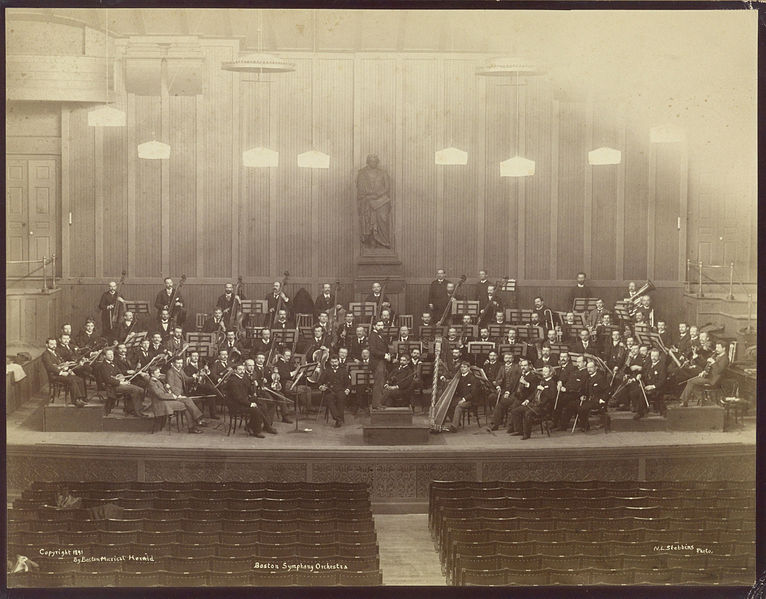Throwback Thursday: The Boston Symphony Orchestra’s First Concert
In addition to engaging in some good natured trash talking with St. Louis, the Boston Symphony Orchestra marked an anniversary of sorts this week. On October 22, 1881, the BSO performed its first concert, a program featuring Beethoven, Gluck, Haydn, and Schubert. One of the earliest groups of players, this one from 1891, is pictured above.
According to M.A. DeWolfe Hall’s 1914 history of the BSO, their founder Henry Lee Higginson wrote a statement of purpose some months before the concert to describe his hopes for the project:
My original scheme was this, viz: To hire an orchestra of sixty men and a conductor, paying them all by the year, reserving to myself the right to all their time needed for rehearsals and for concerts, and allowing them to give lessons when they had time; to give in Boston as many serious concerts of classical music as were wanted, and also to give at other times, and more especially in the summer, concerts of a lighter kind of music, in which should be included good dance music … to keep the prices low always, and especially where the lighter concerts are in question, because to them may come the poorer people; 50 cents and 25 cents being the measure of prices.”
The idea was, evidently, well-received. On September 9, after season tickets went on sale, the Transcript wrote:
Some people aghast at the rush for tickets, ask, in astonishment, where all the audience comes from. Where have all these symphony-concert goers been during the last ten years, that they have hidden themselves so completely from public view ?… Cheap prices have had some effect, but not so much as many persons suppose.
The tickets thusly sold, conductor George Henschel put together a program, assembled his musicians, and on October 22, gave the debut performance at the Boston Music Hall (their original home, where the Orpheum Theater now stands.) The reaction was generally positive. Hall wrote in his history of the Orchestra:
With the audience the concert found the highest favor. The construction of the programmme, with overture, soloist, and finally the symphony before the intermission, which was followed by lighter music intended to send the hearers home in good humor, seemed ideal … The musical critics of the local press found much to commend in this first concert.”
Higginson’s idea, to provide a more permanent, well-funded symphony orchestra to rival those in Europe, had taken off.



